Inmarsat rides SpaceX Falcon into orbit
- Published
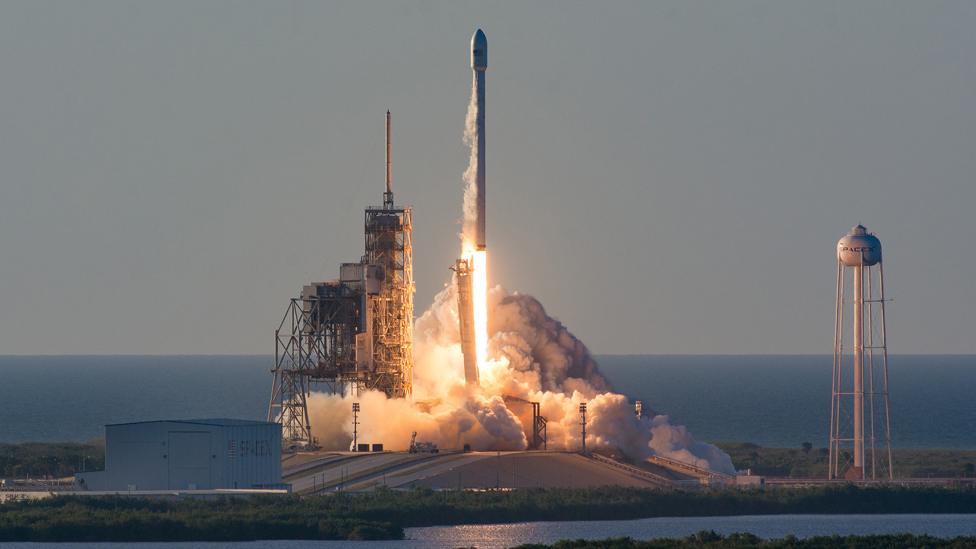
An evening launch for the Falcon rocket and its Inmarsat passenger
Inmarsat, the UK's biggest space company, has boosted its global broadband network with the launch of a fourth high-frequency satellite.
The I-5 F4, which will service the voice, video and data needs of remote and on-the-move customers, was taken into orbit by a SpaceX Falcon-9 rocket.
It is the first time the London company has used the American launch provider.
The rocket and its payload lifted away from Florida's Kennedy Space Center at 19:21 local time (00:21 BST, Tuesday).
The I-5 F4 was ejected from the upper-stage of the Falcon some 32 minutes later.
At six tonnes, the satellite was on the limit of the rocket's performance, meaning SpaceX had no spare propellant to follow its usual practice of landing the vehicle's first-stage back on Earth after the mission.
The booster was allowed instead to fall down uncontrolled over the Atlantic.
Inmarsat has not made it clear precisely where or how it will use the new satellite.
The firm already has three Ka-band spacecraft delivering its Global Xpress broadband service to customers worldwide.
These clients include ships, oil and gas platforms, armed forces and the media - users who need telecommunications away from a fixed line.
CEO Rupert Pearce told BBC News that the new "bird" would act in the first instance as a quick-response spare to fill in behind the primary satellites, should one of them unexpectedly experience a failure.
But it was inevitable, he said, that with ever-increasing demand for capacity, the I-5 F4 would ultimately be deployed to exploit new market opportunities.
"You could say it's something of a 'Swiss Army Knife' for us, and that's a nice position to be in," he added.
"I expect we'll become clear on the early business applications of the satellite around the end of the summer."
Inmarsat owns a number of orbital slots in the geostationary arc some 36,000km above the equator and so is under no pressure to say now exactly where the satellite will be stationed.
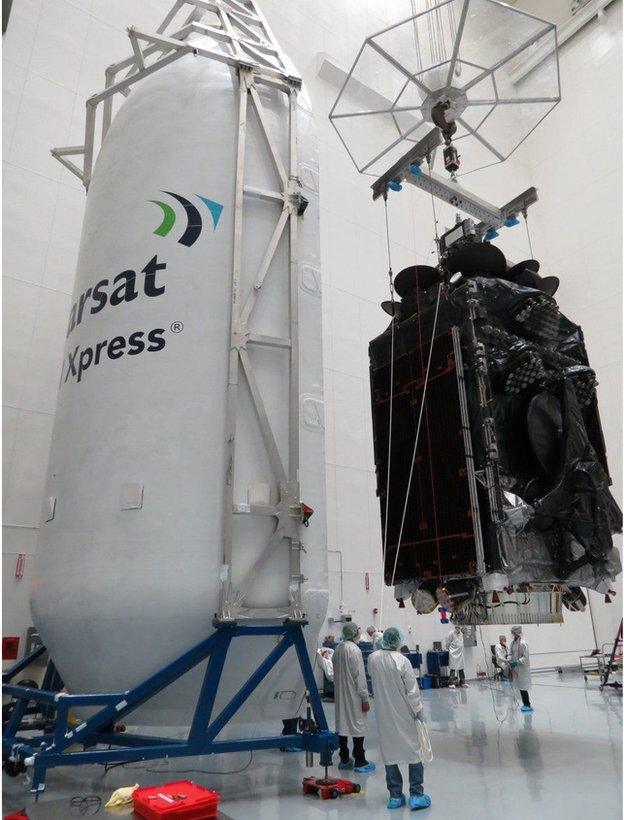
The I-5 F4 being prepared for launch: It is a "Swiss Army Knife" in Inmarsat's business plans
This is a busy period for the London-based satellite operator.
Next month will see the launch of an S-band spacecraft which will work in tandem with ground antennas to provide wi-fi services onboard aeroplanes.
This project, which is a joint venture with Deutsche Telekom, will be the first hybrid space-terrestrial telecommunications network in Europe.
Providing in-flight services has become a key battleground for satellite operators and promises large growth opportunities in the years ahead.
Space analysts Euroconsult estimate that current revenues from in-flight connectivity of $1bn a year could top $6.5bn by 2026.
The industry leaders in this sector - such as Inmarsat, Gogo, Intelsat, SES, and ViaSat - are all investing heavily in systems that will allow passengers to use their mobile devices in the cabins of planes.
"There's a huge amount of effort going on at Inmarsat right now to make sure we take a meaningful bite out of this market because it's market share that will be determined in the next couple of years. So now is when you've got to participate," Mr Pearce said.
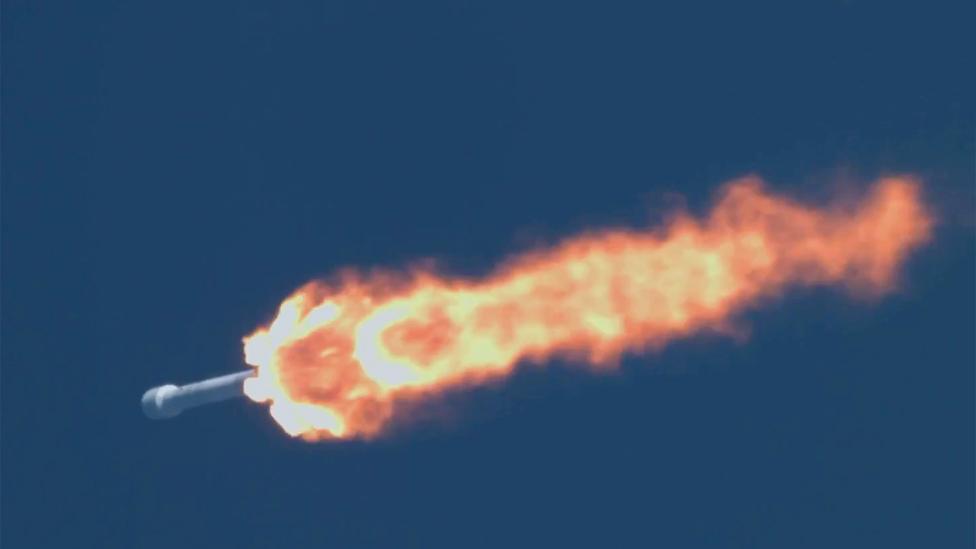
Inmarsat's S-band spacecraft was supposed to be being launched on a Falcon Heavy rocket, a beefed up version of the Falcon-9. But delays in the vehicle's development led to Inmarsat transferring the mission to a European Ariane-5 rocket instead.
Nonetheless, Mr Pearce said he was delighted to fly SpaceX for the first time, and looked forward to the occasion when an Inmarsat satellite would go up on one of the American provider's "second-hand" rockets.
"I'd like to see a longer track record of refurbished rockets being launched successfully without problems," the CEO told BBC News.
"At the moment, we don't put up satellites in sufficient numbers to be relatively sanguine about losing one. But I'm very encouraged by what I've seen in recent months, and once we feel that refurbished rockets are essentially the same as new rockets - we'll jump onboard and extend our relationship with SpaceX."
Jonathan.Amos-INTERNET@bbc.co.uk, external and follow me on Twitter: @BBCAmos, external
- Published31 March 2017
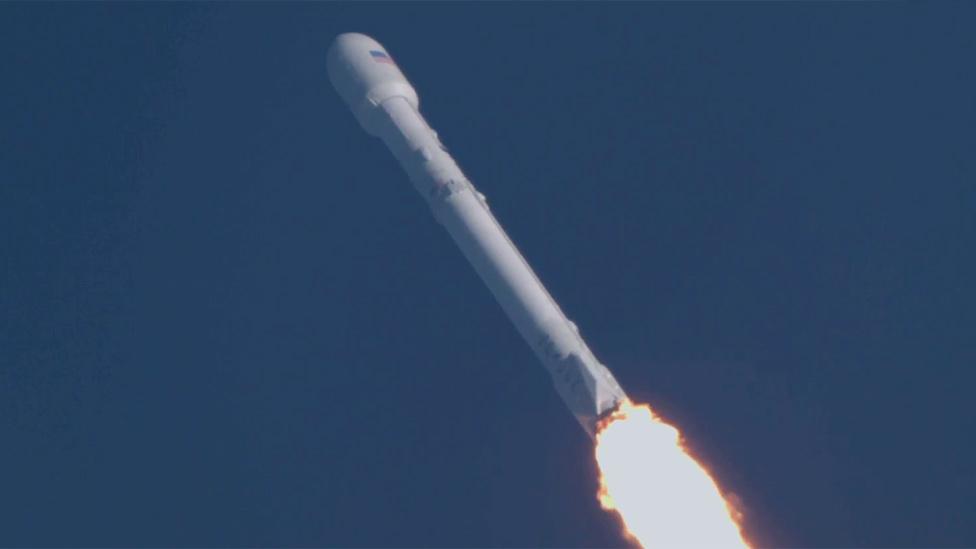
- Published28 January 2016
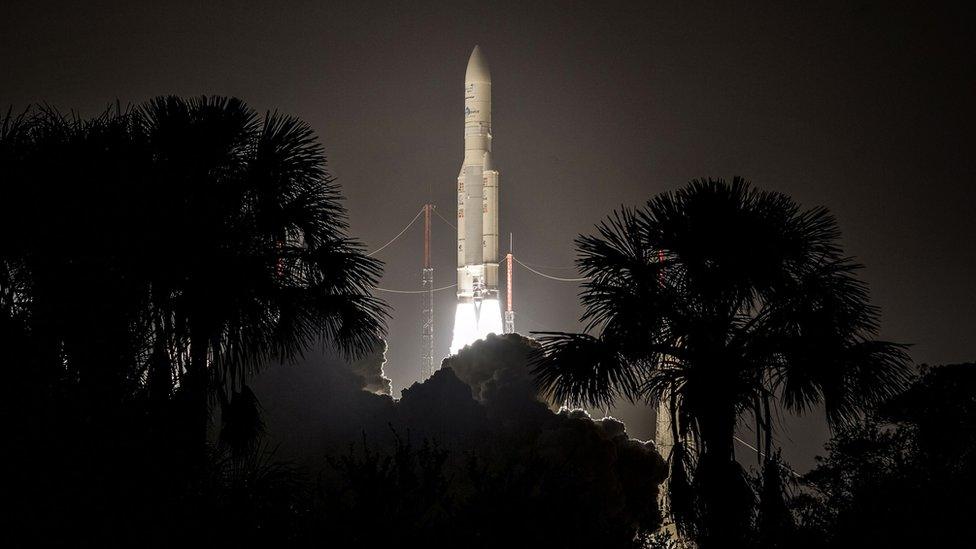
- Published24 December 2015
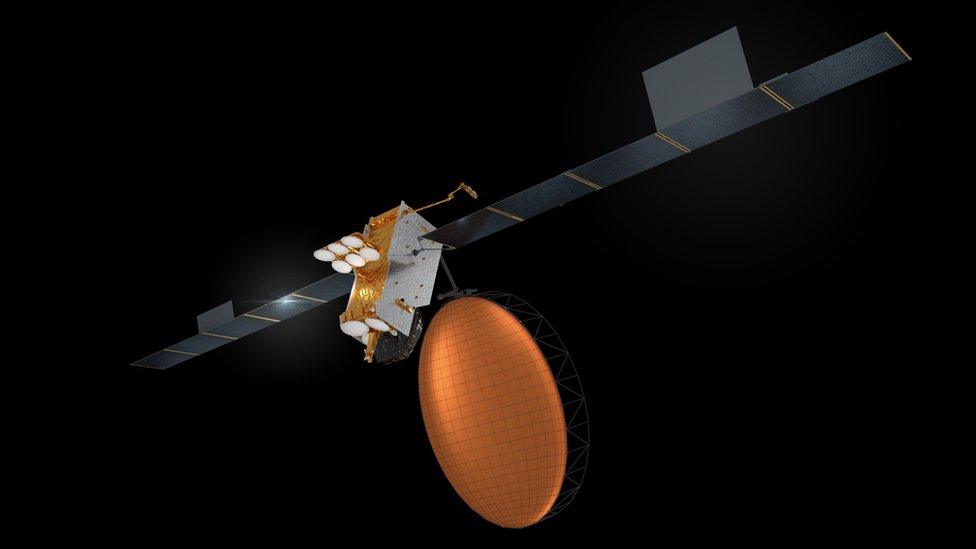
- Published29 August 2015
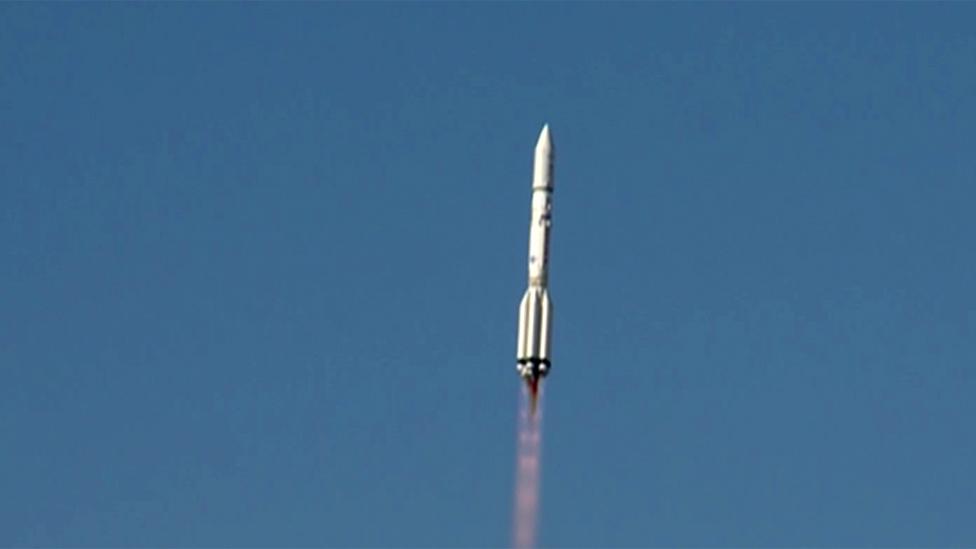
- Published5 June 2014
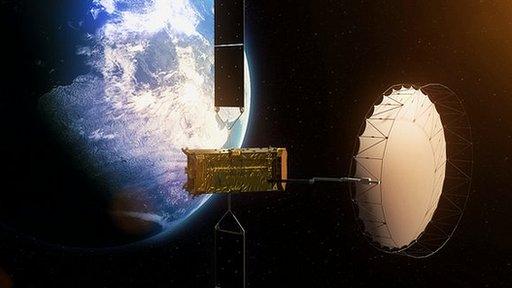
- Published14 May 2012
